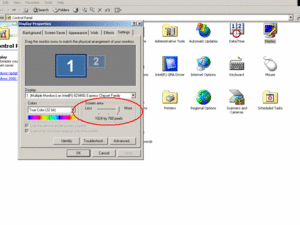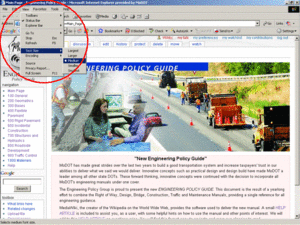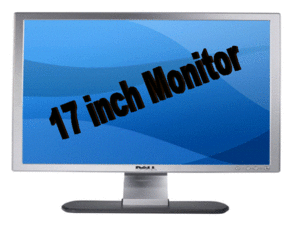Help:Contents
Introduction
This document contains the Missouri Department of Transportation (MoDOT) policy, procedure and guidance for the planning, design, construction, and maintenance of roadway and related facilities in our state. It also includes specific technical topics of right of way, bridge, traffic and materials. The information is presented in numerous “articles” with the use of “Key Points” and “Discussion”. The Key Points represent a summary of the most important policy and guidance items described in each article. These articles are grouped in “Categories” based as closely as possible on pay items and the divisions contained in the publication Missouri Standard Specifications for Highway Construction.
Organization
Although this document has been organized in a logical manner (at least to the writers), it does contain a huge amount of information that can make finding a specific idea difficult. Therefore, a Google search engine is available to the left of the top of an article. It is very effective!
Each category is numbered and the articles within each category are numbered in a manner that ties them to specific categories. These articles are listed at the bottom of each category’s page. For example, 903.5 Regulatory Signs is an article within the category 903 Highway Signing. In each article the reader will notice numerous words in blue. These words are linked to another article, figure or website with related information. This allows the reader to “navigate” the document in an effective manner.
While every effort has been made to base the category and article numbers on MoDOT pay items and specs, not all categories and articles in the EPG are reflected in the pay items and specs. For example the “100 General” Category contains many articles that are important to the design and construction of roadway facilities but do not relate well to the specific pay items which govern the organization of the specification book. Some of these are:
- Needs identification, prioritization and State Transportation Improvement Plan (STIP) commitments.
- Project estimates and the bidding process
- MoDOT’s environmental process and activities.
- Public involvement
- Value analysis
- Use of consultants
- The MoDOT and FHWA relationship
- Bicycle and pedestrian issues
Some articles have numbers that are not pay items numbers such as:
- 750.1 Hydraulic design, Bridge design, and Load Resistance Factor Design (LRFD)
- 760.1 Construction activities for structures and
- 770.1 Maintenance activities for bridges
How best to view the articles
The articles are best viewed on your computer monitor with the following settings: {click on any picture to view)
Use of Terms
The following definitions apply throughout the Engineering Policy Guide:
- May, optional practice(s) with no requirement or recommendation.
- Shall and Will are used in statements of mandatory practice. Contract documents often contain independent definitions.
- Should, is expected or typically necessary. The use of should indicates a practice that is not absolutely mandatory but deviation from this practice calls for engineering documentation.
The Engineering Policy Guide is not a contract document and where a conflict exists between the EPG and a contract, the contract document rules.
How the EPG will be revised when necessary
An engineering technical group with members from the divisions of Design, Bridge, Traffic, Construction and Materials, Maintenance, Planning, and Right of Way has been created to assist Engineering Policy Group personnel with maintenance of the Engineering Policy Guide (EPG). This technical group only meets when a member offers an idea for a revision. The meeting can be via e-mail, phone or even face to face. The member of the technical group must submit a proposed revision that is detailed, complete with revised wording (or figures or charts or tables). In addition, the idea must have justification (why is it necessary, what is the benefit), cost analysis (initial savings or life cycle savings) and implementation schedule.
After the group considers the idea and reaches consensus on its acceptance, it is sent to the Engineering Policy Group for acceptance and editing of the EPG. There will be three options for this acceptance.
If the idea is a simple technical matter, it can be accepted by the staff with the EPG revised without approval from the division engineers or the Chief Engineer. If the idea is "policy" but of a simple nature, it will be sent (e-mail form) to the division engineers for their review and comment. A quick review must be conducted. Should there be minimal comment, the revision will be accepted and the EPG will be revised.
However, if the idea generates many comments or outright opposition, then a meeting of the division engineers is necessary. At the meeting, the division that offered it, must explain it and answer questions prior to a vote. If consensus is reached, the revision can be made to the EPG. If not, the staff will provide a recommendation to the Chief Engineer to resolve the matter.
Finally, if the idea is a significant policy change, the idea goes directly to the Chief Engineer after the initial review and comment period of the division engineers (i.e. no meeting on their comments). The Chief Engineer can review the comments of the division engineers and staff’s recommendation prior to reaching a decision.
Speed in this process is important. Revision approval can take from a few days to perhaps a month. Those in the process govern the speed of the process. Each division engineer must have at least one "alternate" team member with full authority to act when the division engineer is absent. Participation by the alternate must be announced by the division engineer to the others prior to consideration of the revision.
Once a revision is approved, a notice (with effective date if required) will be posted on the EPG Main Page under the heading “Recent Changes”.


